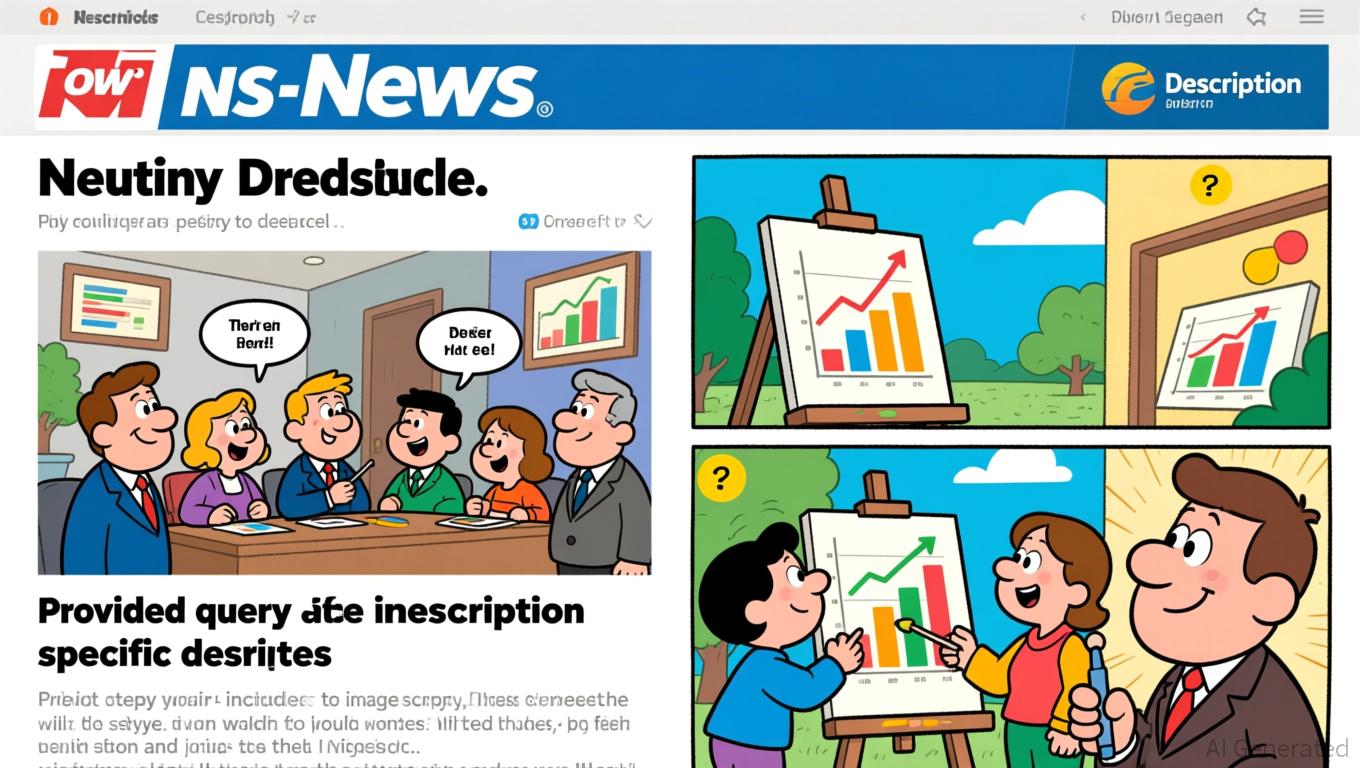Google Integrates Gemini 3 Into Search, Aims for AI Leadership Over OpenAI
- Google launched Gemini 3, its most advanced AI model, directly integrated into Search to strengthen AI competitiveness. - The model emphasizes coding efficiency, multimedia generation, and nuanced responses, with $40B+ invested in global data centers for infrastructure support. - Mobile testing reveals superior performance compared to web versions, showcasing real-world iteration strategies and "vibe coding" capabilities for developers. - Facing OpenAI's GPT-5 challenges, Gemini 3 targets enterprise appl
Google Introduces Gemini 3 AI, Integrates Model Into Search as AI Competition Heats Up
On November 18, Google announced the release of Gemini 3, its newest artificial intelligence model, presenting it as a significant advancement in the ongoing battle for AI supremacy.
Gemini 3's functions are already being piloted in mobile apps.

This debut comes amid fierce rivalry in the AI industry.
Investor sentiment toward the AI surge is varied. Despite Google's major infrastructure investments, Wall Street remains cautious about possible overvaluation.
This calculated launch demonstrates Google's determination to regain its lead in AI after being surpassed by OpenAI's ChatGPT in 2022.
As AI systems become more advanced, their financial and ecological impacts increase. Google's infrastructure expansion, supported by clean energy partnerships, reflects a commitment to responsible AI growth. Meanwhile, OpenAI faces political and financial hurdles, including the possibility of government intervention, keeping the competitive field unpredictable. For now, Gemini 3's integration into Search and enterprise platforms positions
Disclaimer: The content of this article solely reflects the author's opinion and does not represent the platform in any capacity. This article is not intended to serve as a reference for making investment decisions.
You may also like
Ethereum News Update: Crypto Market Divides: Stability or Speculation Amid BlockDAG’s Rapid Growth
- Dogecoin (DOGE) maintained top-ten crypto status in early November 2025 amid market volatility, contrasting with Chainlink's (LINK) uncertain whale activity ahead of delayed U.S. CPI data. - BlockDAG (BDAG) raised $435M in its presale using hybrid Proof-of-Work/DAG architecture, with analysts projecting $0.3–$0.4 launch price and potential 3,000% returns. - Chainlink's price divergence from RSI and whale accumulation of 150,000 LINK ($2.36M) signaled possible trend reversal above $18.76 or bearish confir

Crypto Presale Comparison November 2025: Hyper, BlockDAG, Remittix, Little Pepe, and Layer Brett

Revolut and Polygon Connect Conventional and Digital Finance with $690 Million Stablecoin Initiative
- Revolut partners with Polygon to enable stablecoin payments, processing $690M in transactions via blockchain infrastructure. - 65 million users across 38 countries can now send/receive USDC/USDT with low fees and instant settlements through the integration. - The collaboration supports crypto trading, staking (up to 4% APY), and fiat-to-crypto on-ramps, aligning with Polygon's global payments strategy. - Revolut's MiCA license in Cyprus and Polygon's $3.6B stablecoin network highlight regulatory progress

Breaking the Decentralization Dilemma: Filecoin Cloud Powered by Proofs Instead of Promises
- Filecoin Onchain Cloud, launched Nov 18, 2025, offers decentralized cloud storage with verifiable proofs, programmable payments, and fast retrieval via blockchain. - The platform uses cryptographic guarantees (e.g., Filecoin Warm Storage) to eliminate intermediaries, enabling autonomous, auditable transactions and uptime verification. - Early adopters like ENS, Monad, and Storacha integrate the platform for trustless dApps, with Forge offering $5.99/terabyte IPFS-compatible storage for AI/IoT. - CEO Moll
